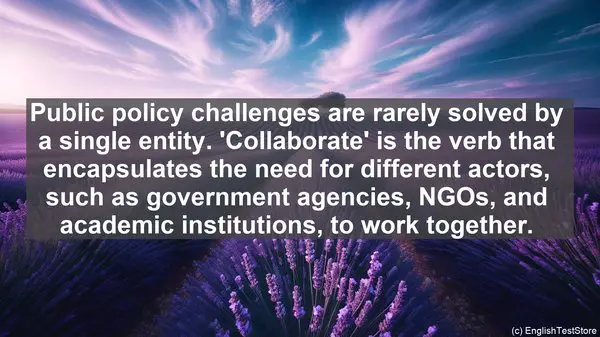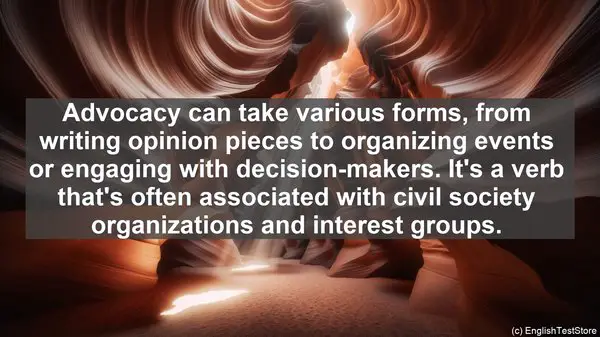Introduction
Welcome to today’s lesson. In the field of public policy analysis and governmental reform, having a strong vocabulary is crucial. Today, we’re going to explore the top 10 verbs that are frequently used when discussing these topics. Whether you’re a student of political science or simply interested in understanding how policies are formulated and reformed, this lesson is for you. So, let’s dive in!
1. Analyze
The first verb on our list is ‘analyze.’ When we talk about public policies, it’s essential to break them down, examine their components, and understand their implications. Analyzing a policy involves studying its objectives, the methods used to achieve them, and the potential consequences. It’s a verb that’s often used in research papers, policy briefs, and even in everyday discussions about current affairs.
2. Evaluate
Next up, we have ‘evaluate.’ This verb goes beyond analysis. When we evaluate a policy, we not only study its components but also assess its effectiveness, efficiency, and fairness. Evaluation often involves comparing a policy to alternative approaches or benchmarks. Policymakers and researchers use evaluation to determine if a policy is achieving its intended outcomes or if adjustments are needed.
3. Formulate
Moving on, we come to ‘formulate.’ This verb is all about the initial stages of policy development. When policymakers formulate a policy, they’re essentially creating it from scratch. This process involves identifying a problem, conducting research, consulting stakeholders, and designing a set of actions or interventions. Formulation is a critical phase as it sets the foundation for the entire policy cycle.
4. Implement
Once a policy is formulated, it needs to be implemented. ‘Implement’ is the verb that describes the action of putting a policy into practice. Implementation involves a range of activities, from allocating resources to coordinating different stakeholders. It’s a complex process that requires effective management and communication to ensure the policy’s objectives are met.
5. Monitor
A policy’s journey doesn’t end with implementation. Monitoring is an ongoing activity that helps assess if a policy is being implemented as intended and if it’s achieving the desired outcomes. Monitoring involves collecting data, analyzing progress, and identifying any deviations or challenges. It’s an essential verb for policymakers who need to ensure their policies are on track.
6. Revise
Sometimes, a policy may not yield the expected results or may face unforeseen challenges. In such cases, policymakers need to ‘revise’ the policy. This verb signifies the act of making changes or adjustments to a policy to improve its effectiveness or address emerging issues. Revising a policy often involves consulting experts, stakeholders, and the public to ensure a comprehensive and informed approach.

7. Advocate
Public policy is not just about formulation and implementation; it’s also about advocacy. When we ‘advocate’ for a policy, we’re actively supporting it, promoting its benefits, and seeking public or political support. Advocacy can take various forms, from writing opinion pieces to organizing events or engaging with decision-makers. It’s a verb that’s often associated with civil society organizations and interest groups.
8. Reform
In the realm of public policy, ‘reform’ is a verb that signifies significant changes or improvements to existing policies or systems. Reform is often driven by a recognition that the current approach is not working optimally or that societal needs have evolved. Reform can be a complex and contentious process, requiring careful analysis, stakeholder engagement, and political will.
9. Collaborate
Public policy challenges are rarely solved by a single entity. ‘Collaborate’ is the verb that encapsulates the need for different actors, such as government agencies, NGOs, and academic institutions, to work together. Collaboration involves sharing resources, expertise, and responsibilities to achieve a common goal. It’s a verb that’s increasingly emphasized in the context of complex, multi-faceted policy issues.
10. Communicate
Last but not least, we have ‘communicate.’ Effective communication is at the heart of successful policy work. Whether it’s conveying complex ideas to the public, presenting research findings to policymakers, or facilitating dialogue between different stakeholders, communication is essential. It’s not just about the words we use; it’s also about the medium, timing, and audience understanding.

